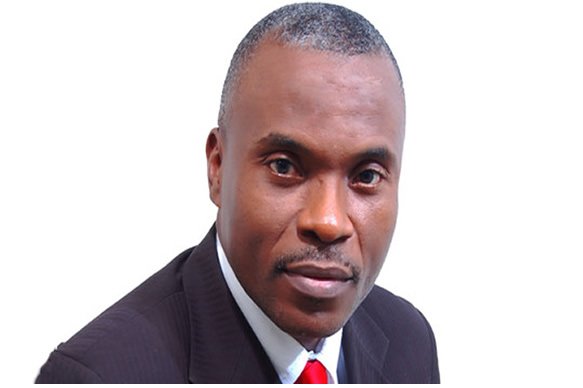
If the biblical story of Sodom and Gomorrah were re-enacted in Nigeria on the issue of bribery and corruption, the outcome would be shocking and disappointing, given the high religiosity displayed by Nigerians. Many Nigerians usually express righteous anger when someone says that it is hard to find a Nigerian who is completely free from bribery and corruption. But that claim is not necessarily because Nigerians are bad people. The reason is that Nigerians live in a country that has completely lost its moral compass and no longer sees bribery or corruption as bad.
That was why last week’s announcement by the National Drug Law Enforcement Agency that Nigeria’s most celebrated police officer, Mr Abba Kyari, was allegedly found complicit in a drug-related corrupt practice was not entirely shocking, albeit it was disappointing. In July 2021, a United States’ court declared Kyari wanted following the allegation by the Federal Bureau of Investigation that the deputy commissioner of police received a bribe from an arrested international fraudster, Ramon Abbass, popularly known as Hushpuppi. The Nigeria Police Force had placed Kyari on suspension while investigations into the allegation were on.
Ironically, while Kyari was still in suspension, he evidently continued to work with the Intelligence Response Team, though he had been replaced since August 2021 by Mr Tunji Disu, another deputy commissioner of police, as the head of the unit. It was with some members of the IRT that he allegedly perpetrated the current drug-related crime for which he was arrested last week. According to the NDLEA, which alleged that “DCP Kyari is a member of a drug cartel that operates the Brazil-Ethiopia-Nigeria illicit drug pipeline,” Kyari’s team intercepted a drug courier with 25 kg of cocaine. He got in touch with an officer of the NDLEA to strike a deal to have 15kg part of the drug sold and replaced with a dummy. The NDLEA officer played along with the knowledge of his superiors. After Kyari had sold the drug and delivered the share of the NDLEA officer, the NDLEA invited Kyari but when he did not honour their invitation, they called a press conference at which they declared him wanted.
The Nigeria Police Force fired back, noting that some NDLEA officers at the Akanu Ibiam International Airport, Enugu were in collusion with some drug cartel. The NDLEA officials gave the drug cartel free passage. It was a member of that cartel that Kyari intercepted and wanted to share the proceeds of part of the sale of the hard drugs. The NPF added that it had handed Kyari and the other four police officers to the NDLEA. It urged the NDLEA to also prosecute its members who were involved in the drug issue.
What exists in Nigeria is a rotten system. From the Nigeria Police Force to the Nigerian Army to the National Drug Law Enforcement Agency to the Department of State Services to the Economic and Financial Crimes Commission to the Nigeria Immigration Service to the Nigeria Customs Service to the Federal Road Safety Corps to the Standards Organisation of Nigeria to the National Agency of Food and Drug Administration and Control, it is the same story of entrenched sleaze. It doesn’t matter if it is at the ports, airports, waterways, railways, prisons, law courts, schools, universities, churches, mosques, media, political parties, civil service or government offices, corruption struts around with impunity. Bribes are demanded as a right and given out of helplessness.
Most people don’t offer a bribe because they want to. They are usually “compelled” to do so. They watch as their rights are denied them. They watch as those who offer and demand bribes are celebrated in churches and mosques as role models. They see as those who give and demand bribes are the well-to-do philanthropists in their society. They see as those who resist giving or demanding bribes are not only losing their rights and privileges but also languishing in lack. Not only that, they see as those who want to maintain their integrity are blackmailed and roped into one crime or the other and destroyed by those who hate to see anyone trying to prove to be different. After seeing all these and knowing that there is nobody to fight for them against the indomitable powers of corruption, they find themselves succumbing to the dictates of corruption.
Imagine a retired civil servant whose pension has been unpaid for many months. After complaining to different people and groups for a long time without results, he is eventually told that if he would give someone in the office a percentage of the unpaid pension, it would be released to him. Out of frustration and desperation, he accedes to that and gets his pension paid. In addition, imagine a woman whose husband or son has been arrested and detained in a police station or prison. She then decides to pay him a visit to give him some provisions. At the gate of the prison he is compelled to part with some money. If she decides to be Madam Integrity, she will not be allowed to see her husband or son or drop some provisions for him.
What about the person who has bought a parcel of land and needs to register the land and get all the necessary documents from the government as proof of ownership? If his document has to move from one table to another, it has to be propelled by the power of money. To avoid getting to directly pay this bribe from desk to desk, most people will pay someone like a lawyer or property agent to process all the documents for them. They pay a fee to the person from which the person takes care of all the demands for bribes. That way, most owners of land satisfy their conscience that they are not directly paying a bribe.
Similarly, if an orphanage is offered a bus by a state governor, one would think that it would be processed without any stumbling block. Even after the governor has approved the release of the vehicle, it may still take the orphanage ten years to receive it if it ever receives it. For it to be delivered, those in charge have to be “appreciated.”
Another challenge is the wrong perception of what corruption is by many Nigerians. Most Nigerians interpret corruption as some evil committed by those in positions of power who are not related to them or from their part of the country. Many even see it as the sane and normal thing any sensible person in power should do. A position of power is seen as God’s blessing that should be fully exploited because it is a golden opportunity that does not always come.
There is also the wrong perception that demanding a small bribe is not really corruption. For corruption to occur, it has to be huge and run into many millions or billions of naira. Giving such amounts of money to those in charge of processing people’s documents is interpreted as being appreciative, generous and good. Those who don’t part with money when it is demanded are seen as stingy and wicked people who prefer to “chop alone” and do not want the progress of others. All attempts are made to frustrate them and even rope them into one problem or the other as a way to punish them for being holier-than-thou.
Therefore, if Nigerians are thoroughly examined, it will be hard to find absolutely clean ones, not because there are no good Nigerians but because from right, left, centre and above, Nigerians have been so traumatised with the denial of their basic rights that they no longer understand what corruption truly means.
Copyright PUNCH.
All rights reserved. This material, and other digital content on this website, may not be reproduced, published, broadcast, rewritten or redistributed in whole or in part without prior express written permission from PUNCH.
Contact: [email protected]














